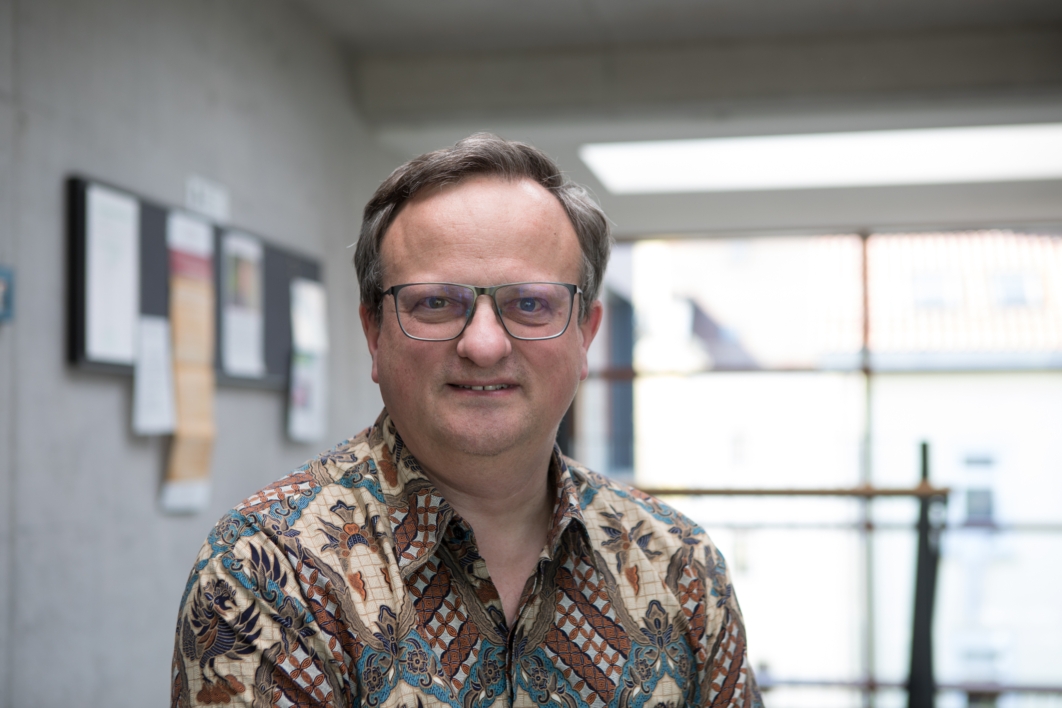03.05.2022
ERC Advanced Grant for Harald Baayen
Cluster member Harald Baayen, Professor for Quantitative Linguistics, has successfully applied for an Advanced Grant from the European Research Council (ERC). The Advanced Grants go to particularly experienced researchers who have made great scientific achievements. In his project „Subliminal learning in the Mandarin lexicon“ (SUBLIMINAL) Baayen examins how we can improve second-language learning by taking into account that writing systems hide from our eyes the truth of how we really speak.
For linguist Harald Baayen it is the second time that he has received the prestigious ERC Advanced Grant. He was already successful in 2017 with his project WIDE (Wide Incremental learning with Discrimination nEtworks). Central to Harald Baayen’s now awarded research project SUBLIMINAL is the observation that there are subtle regularities in spoken language that escape our awareness, but play an important role in language learning and language use.
Philosophers such as Immanuel Kant, Edmund Husserl and Maurice Merleau-Ponty, and more recently the cognitive scientist Donald Hoffman, have called attention to how our perception of reality is shaped and filtered by our minds and bodies. Baayen argues that our perception of language is no exception, and that it is filtered through our writing systems. For native speakers, mismatches between writing conventions and everyday spoken language tend not to cause problems. For example, English speakers are not confused when in spontaneous conversation someone says “prolly” instead of “probably”. But when acquiring a new language, Baayen says, "systematic mismatches make learning unnecessarily difficult."
His research project addresses the learning of Mandarin Chinese, a language in which different words can have the same sounds but different pitch melodies (tones). Baayen will examine in detail how Mandarin speakers actually say words, with special attention to how they realize tones. He will also study how the unique writing system of Chinese creates multiple layers of meaning. Using state-of-the-art methods of computer modeling, distributional semantics and statistical analysis, he will investigate how form and meaning align and use the results to enhance methods of vocabulary learning for Mandarin Chinese as a second language.
Professor Rolf Harald Baayen studied General Linguistics at the Free University of Amsterdam. After working as a professor for Quantitative Linguistics at Radboud University in Nijmegen, he held a professorship at the University of Alberta in Edmonton, Canada, from 2007. In 2011, a Humboldt Professorship brought him to the University of Tübingen. He is considered one of the most innovative researchers in the field of vocabulary research and quantitative linguistics. As a pioneer in computational and empirical language research and psycholinguistics, he has made fundamental contributions e.g. to the understanding of human language ability and the role of memory in language processing.
After a press release, University of Tübingen, 26.04.2022
Contact:
Prof. Dr. Harald Baayen
harald.baayenspam prevention@uni-tuebingen.de
https://www.sfs.uni-tuebingen.de/~hbaayen/

